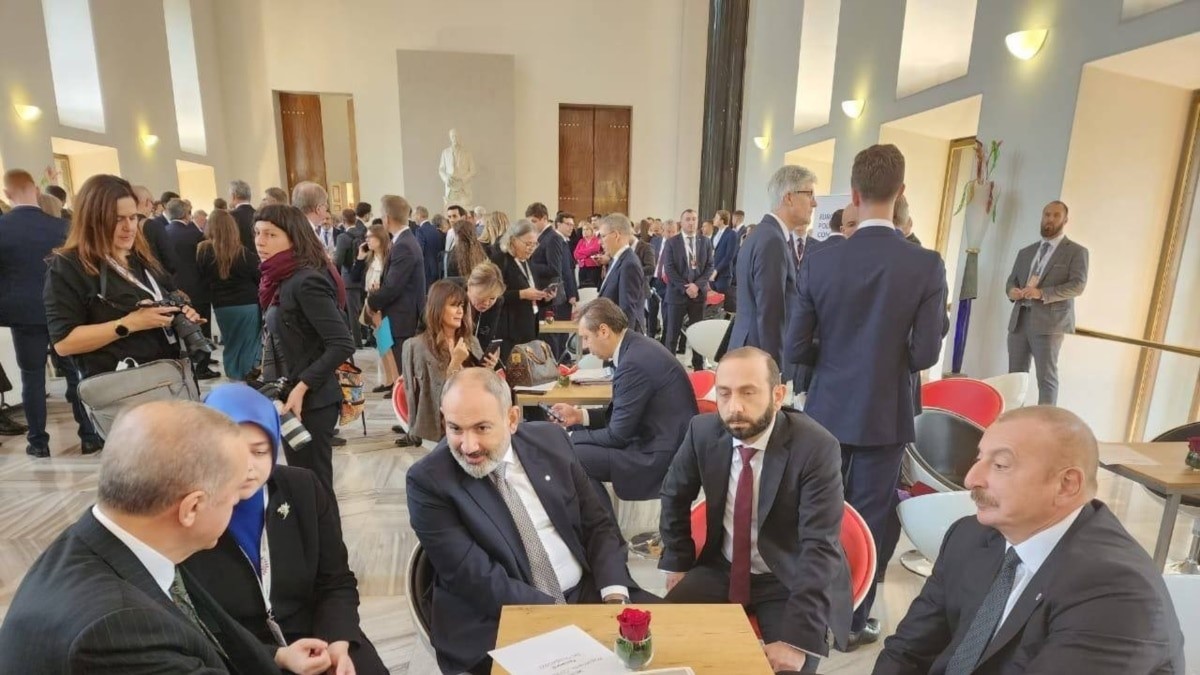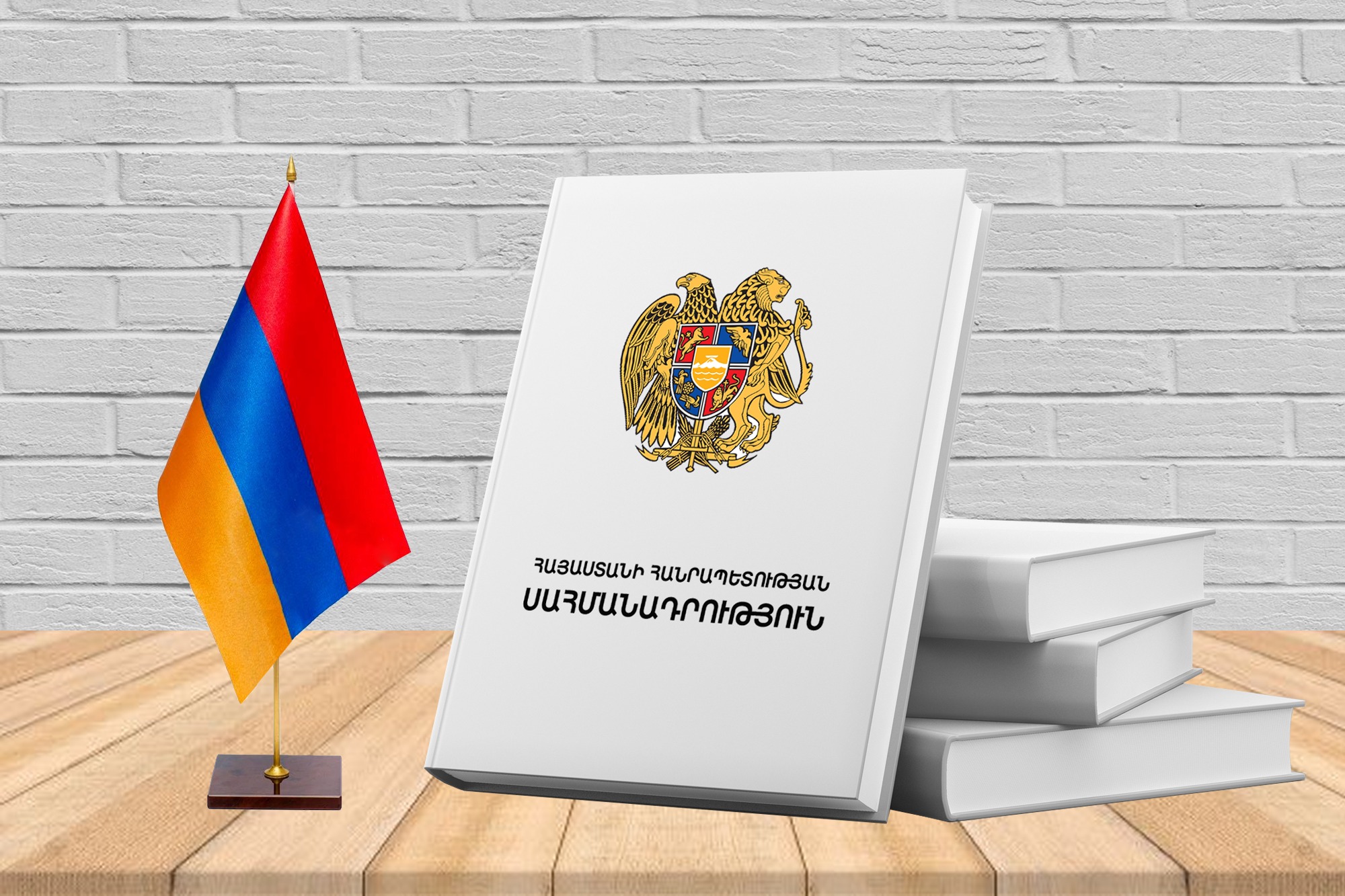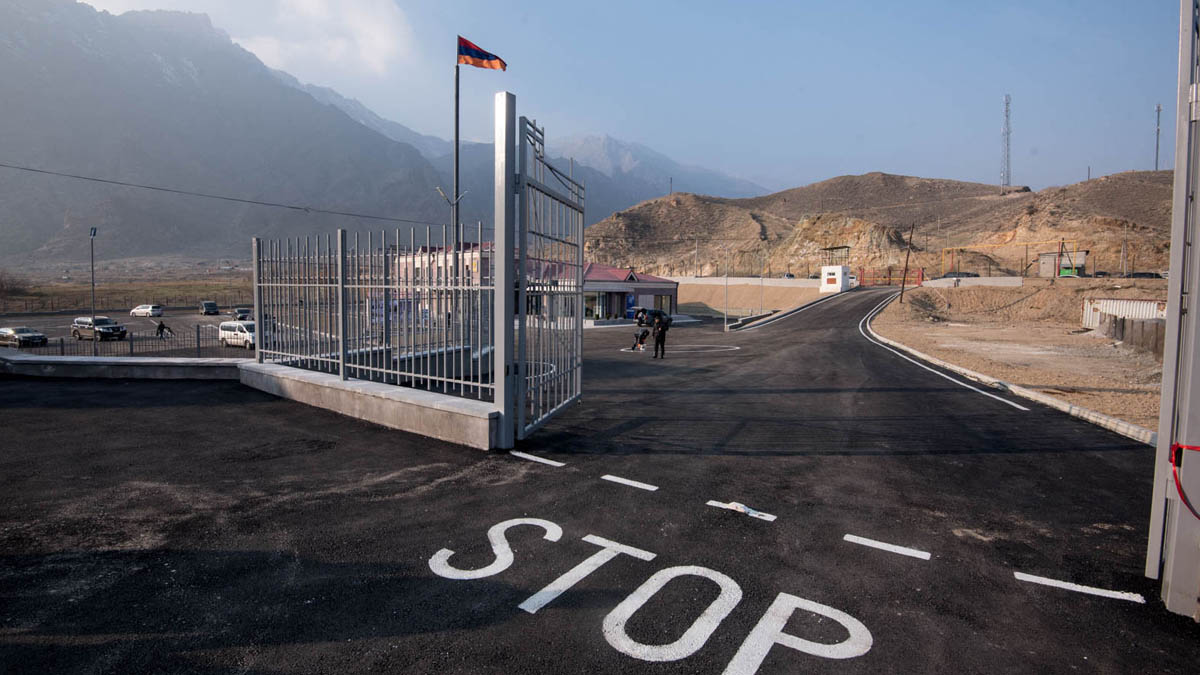Turkey's position on Armenia-Azerbaijan peace agreement: a view from Yerevan
Erdogan on the Armenia-Azerbaijan peace agreement
After the NATO summit, Turkish president Recep Tayyip Erdogan told reporters that Ankara supports the signing of a peace agreement between Armenia and Azerbaijan. He emphasized the importance of taking positive steps “without delay.” According to Erdogan, the “final step” for signing the peace agreement will be the opening of the so-called “Zangezur Corridor.”
Ilham Aliyev refers to this corridor as the road through southern Armenia that will connect Azerbaijan with its exclave, Nakhchivan. The Armenian authorities have expressed readiness to unblock communications for several years. However, they find the idea of providing an extraterritorial corridor, which means losing control over their territory, unacceptable.
The opening of the “corridor” is just one of the preconditions set by Turkey and Azerbaijan, says political analyst Ara Poghosyan. Another condition is the amendment of the Armenian constitution. For the full “implementation of the Turkish-Azerbaijani plan,” it remains to secure these concessions from Yerevan, the expert believes.
To achieve these goals, Ankara and Baku, according to Poghosyan, are leveraging the involvement of players who are interested in the swift conclusion of a peace treaty and are ready to “exert additional pressure on Armenia.”
- Yerevan proposes joint investigation of ceasefire violations, no response from Baku
- “Baku is unlikely to agree to the delimitation of the entire border.” An opinion from Yerevan
- Pashinyan: ‘External forces want to provoke war in Armenia for the sake of a change of government’
“We must raise the sails of peace”
Erdogan remarked that he sees positive steps being taken towards the signing of a peace agreement between Armenia and Azerbaijan. According to him, the president of Azerbaijan has also assured him of his commitment to advancing this process.
“We have already discussed everything with Armenian prime minister Nikol Pashinyan. We must raise the sails of peace,” stated the Turkish president.
Erdogan emphasized that Turkey “wholeheartedly supports” peace. Moreover, he hopes that a lasting peace between Azerbaijan and Armenia will be established soon. In this context, he reiterated the importance of opening the so-called “Zangezur Corridor”:
“The Zangezur Corridor is strategic and will benefit all parties: Azerbaijan, Armenia, and Iran. Once the corridor is operational, everything will become easier for everyone.”
The current stage of Armenia-Azerbaijan negotiations
Recently, Yerevan has been consistently announcing its readiness to finalize all work and sign a peace treaty within a month. In response, Azerbaijan insists that constitutional amendments in Armenia are necessary for the peace agreement to be signed.
Baku considers it problematic that the Armenian constitution references the Declaration of Independence, which mentions the reunification of the Armenian SSR and Nagorno-Karabakh. Meanwhile, Armenia views constitutional changes as an internal matter. However, the intention to amend the constitution has been on the authorities’ agenda long before Azerbaijan set this precondition. This issue remains relevant for the ruling team today, though such a process takes time. As a result, Armenian experts perceive Azerbaijan’s demand as a reluctance to sign the peace agreement.
The foreign ministers of the two countries met on July 10 during the NATO summit. Following the meeting, which was mediated by US Secretary of State Antony Blinken, the Armenian Ministry of Foreign Affairs released the following statement:
“Both sides noted the progress made by Armenia and Azerbaijan towards concluding a historic peace treaty and establishing interstate relations, and they agreed to continue their work.”
Commentary
Political analyst Ara Poghosyan points out that the “corridor” topic is currently being discussed in Armenia as a part of various logistical chains. According to him, there is even consideration of ensuring the “security and maintenance” of this road segment by a private company from a third country.
“Now, with the West pressuring Azerbaijan to sign an agreement with Armenia as soon as possible, Turkey and Azerbaijan are quite coordinated in presenting their demands as preconditions,” says Poghosyan.
He emphasizes that these preconditions are also being announced to encourage parties interested in the Armenia-Azerbaijan peace agreement to exert additional pressure on Yerevan.
The analyst believes that the “corridor” issue is more political than economic:
“I am confident that this issue holds neither significant logistical importance in the global logistics system nor economic value. This is a road for realizing geopolitical interests, allowing Turkey and Azerbaijan to finalize their regional strategy.”
Poghosyan also commented on Erdogan’s statement that Turkey might open its border with Armenia after the agreement between Yerevan and Baku is signed. The political analyst urges skepticism towards the sincerity of statements coming from Turkey, including assurances about opening the border.





















